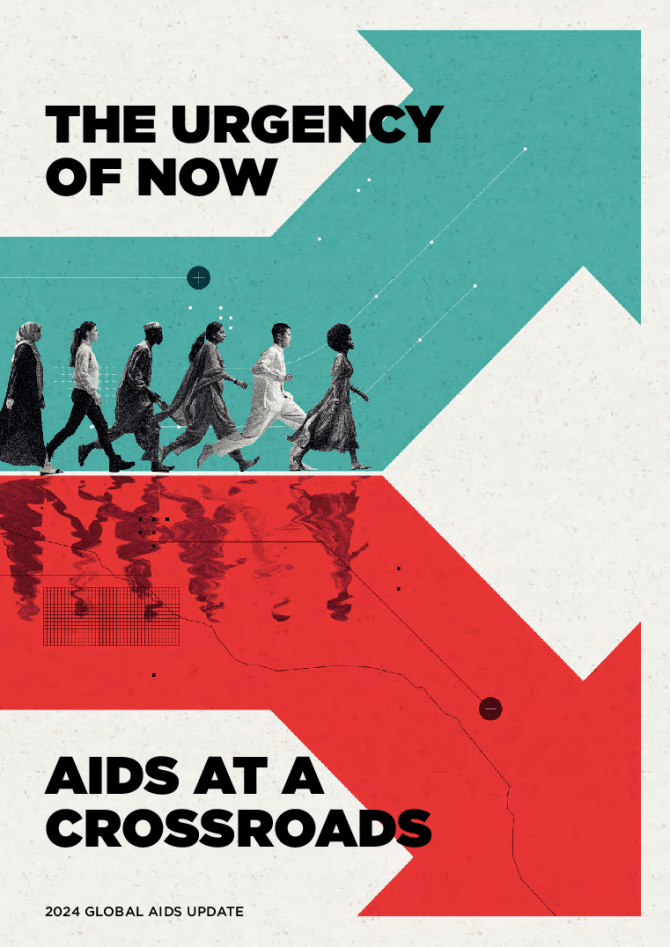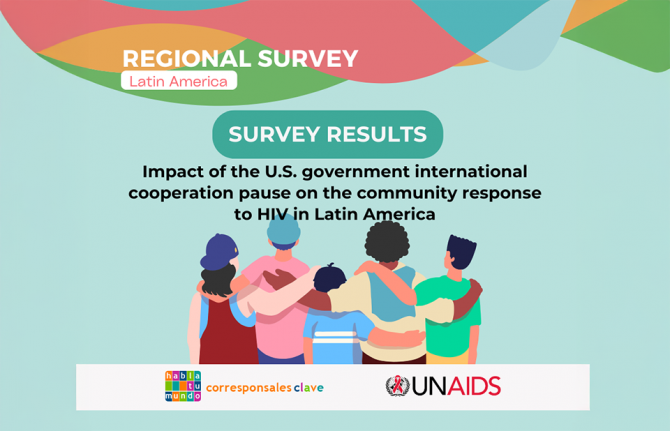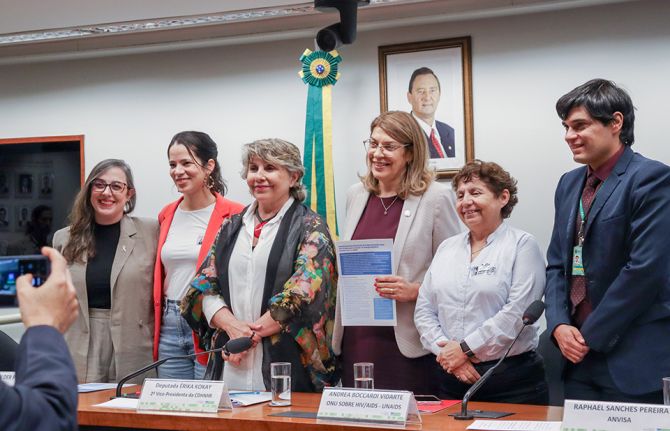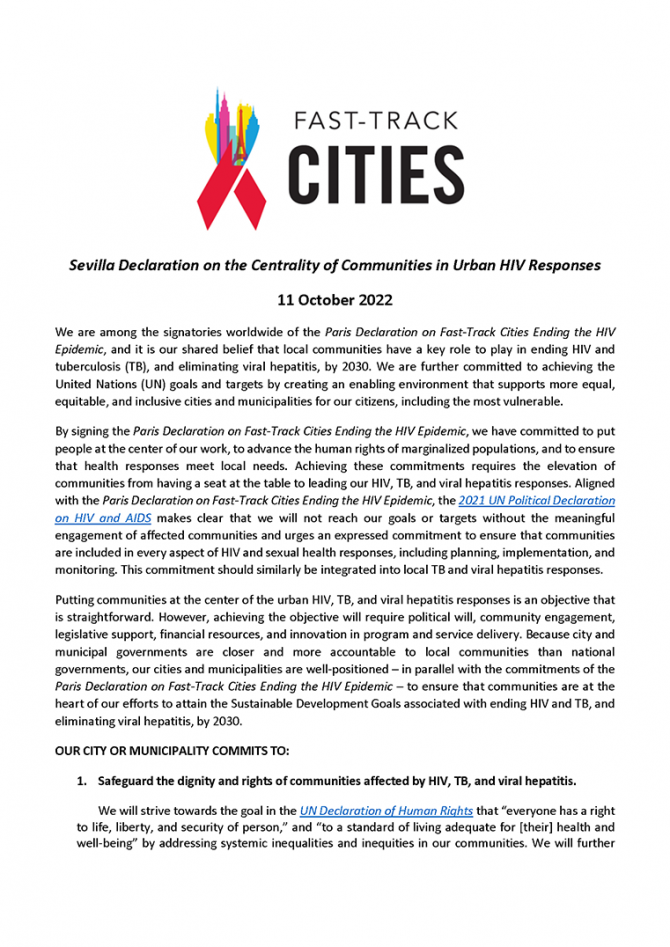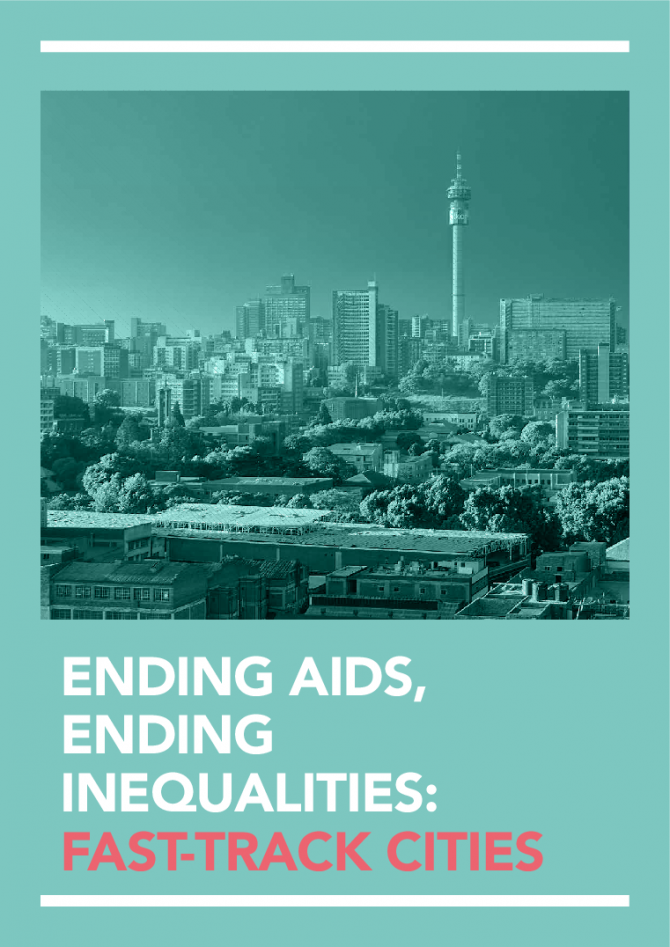Documents
2024 global AIDS report — The Urgency of Now: AIDS at a Crossroads
22 July 2024
This UNAIDS 2024 report brings together new data and case studies which demonstrate that the decisions and policy choices taken by world leaders this year will decide the fate of millions of lives and whether the world’s deadliest pandemic is overcome. Related links: Press release | Special web site | Executive summary | Fact sheet | Video playlist | Epidemiology slides | Data on HIV | Annex 2: Methods Regional profiles: Asia and the Pacific | Caribbean | Eastern Europe and Central Asia | Eastern and Southern Africa| Latin America | Middle East and North Africa | Western and Central Africa | Western and Central Europe and North America Thematic briefing notes: People living with HIV | Gay men and other men who have sex with men | Transgender people | Sex workers | People who inject drugs | People in prisons and other closed settings | Adolescent girls and young women | Other translations: German

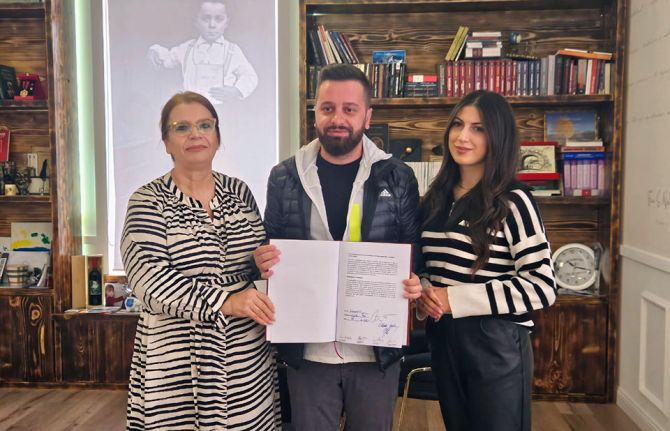
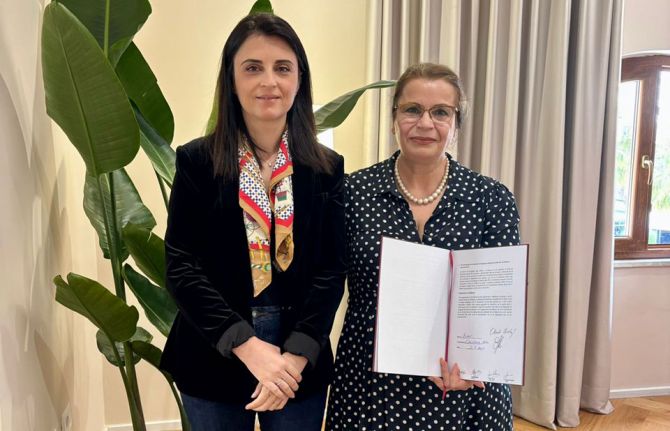
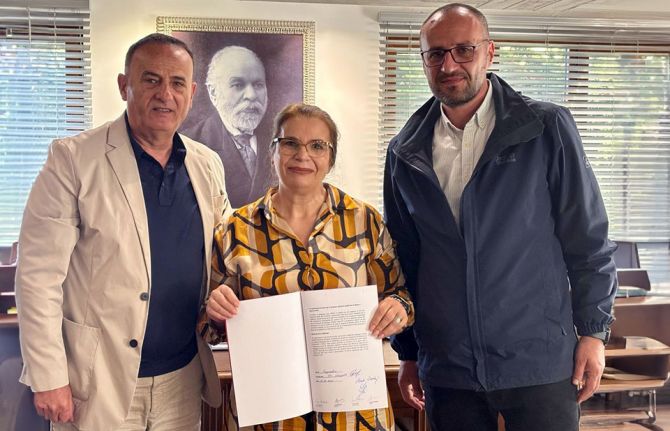
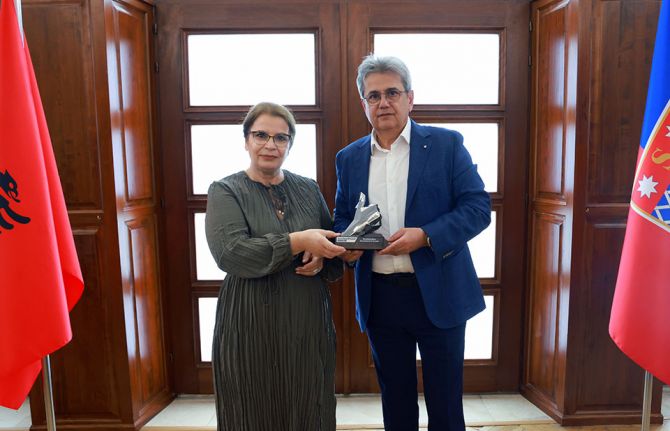
Feature Story
Four Albanian cities commit to ending the AIDS epidemic by 2030
19 June 2024
19 June 2024 19 June 2024Four Albanian cities—Kolonja, Durrës, Pogradec, and Shkodra—have signed the Paris Declaration on AIDS committing to ending AIDS as a public health threatby 2030. By signing the declaration, the Mayors committed to achieving the 95-95-95 targets by 2025 and called on other municipalities in Albania, including the capital Tirana, to join this effort.
The Albanian cities are the latest additions to the list of more than 550 other cities around the world that are part of the Fast-Track Cities initiative which aims to fast-track action at local level to improve the quality of life of people living with and affected by HIV.
In order to fulfill their commitments, the cities have developed different plans of action based on their local circumstances. For instance, the Municipality of Durrës plans to increase investments in methadone maintenance therapy, aiming to expand the number of people benefiting from such services by 10% each year.
The Municipalities of Pogradec and Kolonja are focused on raising awareness among migrant populations to increase HIV testing rates in these regions. As border cities with a significant male population migrating for work, ensuring these communities are well-informed and have access to necessary health services is crucial.
Finally, the Municipality of Shkoder aims to foster a partnership with Podgorica in Montenegro to exchange experiences and best practices in developing the "Healthy Houses" model, which has been successful in the neighboring country. The "Healthy Houses" initiative is a free social service providing psychosocial support to citizens. It focuses on improving the quality of life, reducing risks, and offering support to socially vulnerable groups. The service addresses a range of issues, including HIV, domestic violence, addiction, services for LGBTQ+ peopleand others.
Olimbi Hoxhaj, Executive Director of the Albanian Association of People Living with HIV, hopes that signing the Declaration and the follow-up actions will not only help prevent new HIV infectionsbut will also significantly reduce AIDS-related mortality.
Albania has a low HIV-prevalence epidemic but faces an increasing number of new HIV cases. From 1993 to 2023, 1,716 cases were diagnosed, with 113 new cases in 2023 alone. Most HIV testing occurs in the late stages of infection (about 60% of new cases), meaning official figures do not fully represent the actual infection rate.
The Minister of Health and Social Protection of Albania, Ogerta Manastirliu, emphasized that rapid diagnosis and treatment are key. “The whole fight in this aspect is timely diagnosis so that the treatment can start as soon as possible, and the infection is under control.”
“While the European region continues to face political, economic, and healthcare challenges due to regional conflicts, migration, and other complexities, it is important to secure commitment from municipalities to advance progress towards the crucial HIV targets,” said Eamonn Murphy, UNAIDS Regional Director for Asia-Pacific and Eastern Europe and Central Asia.
Technical assistance to all municipalities in developing their local programs was provided through the cooperation between the International Association of AIDS Care Providers (IAPAC), the Fast-Track Cities Institute (FTCI), UNAIDS and the Global Fund’s regional #SoS 2.0 project, which aims to ensure the sustainability of HIV services in 15 countries in Eastern Europe. "Since 2019, with our support, 21 municipalities from Southeast Europe have joined the Fast-Track Cities initiative," said Tetiana Deshko, Director of the International Programs Department at the Alliance for Public Health.
Learn more
Region/country
Related
 Multisectoral resilience to funding cuts in Guatemala
Multisectoral resilience to funding cuts in Guatemala

22 December 2025

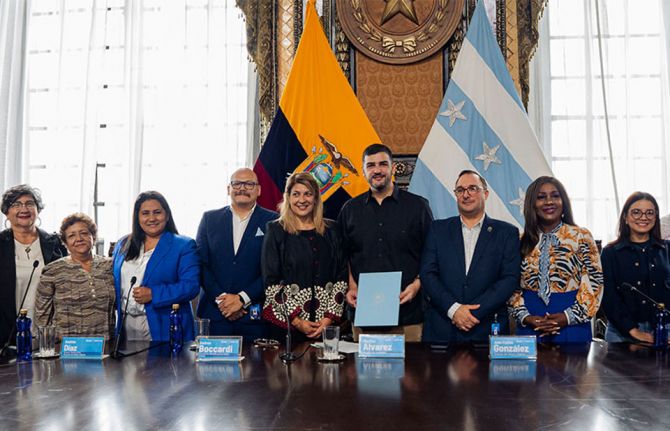
Feature Story
Guayaquil joins the worldwide group of cities committed to ending the HIV epidemic
15 March 2024
15 March 2024 15 March 2024Mayor Aquiles Alvarez Henriques of Guayaquil, Ecuador's largest city and the nation's main port, signed the Paris and Sevilla Declarations on February 28, placing the city among the almost 500 municipalities around the world that are committed to fast-tracking action at local level to improve the quality of life of people living with and affected by HIV. Through this commitment, the city pledges to contribute to the country's goal of ending AIDS as a public health threat by 2030.
Guayaquil is the capital of the province of Guayas, Ecuador's most populated province and the most affected by HIV, with over a third of all new HIV infection notifications in the country, according to the Ministry of Public Health of Ecuador. It has a concentrated epidemic among key populations, with an HIV prevalence of 7.3% among gay men and other men who have sex with men (MSM), for example.
"A significant number of cases reported with HIV in 2023 live in Guayaquil", said Andrés Díaz, Technical Director of the city's Infectious Disease Prevention Unit of the Health and Hygiene Directorate. "We know that the best way to improve HIV prevention is through education and sensitization of citizens so that they can get tested."
Guayaquil has made significant efforts to intensify HIV screening and has increased the detection of HIV-positive cases by 1.6%. Diagnosed people are immediately linked to the public health system to start first-line antiretroviral treatment, which is universally available to nationals and migrants in Ecuador.
Nonetheless, the Health Department of the Guayaquil Municipality has developed a plan with key actions to be implemented as a result of the city’s commitment to the Fast-Track initiative. Some of the most strategic priorities incorporate the scale up of HIV services, including HIV prevention, early diagnosis, and timely treatment of HIV and other sexually transmitted infections; the sensitization of civil servants on issues of stigma, discrimination, and gender-based violence linked to HIV; and facilitate the engagement of communities, specially from key and vulnerable population, in the definition and implementation of HIV programmes at community level.
Representatives of community and civil society organizations such as Corporación Kimirina, the Ecuadorian Coalition of People Living with HIV, and the Silueta X LGBT+ Trans Association attended the event. These organizations play a crucial role in the city's efforts to respond to HIV. "Citizen involvement under the local authority's leadership, with emphasis on the most vulnerable and at-risk community groups, is vital to achieving the goal of ending AIDS by 2030,” emphasized the delegates of Corporacion Kimirina Maria Elena Acosta and Lily Marquez. Similarly, Joan Morales from the Ecuadorian Coalition of People Living with HIV stressed that "By signing the Paris and Sevilla Declarations, Guayaquil joins many other cities that have committed to provide accelerated and sustained health services that allow us to eradicate not only AIDS but also TB, Malaria, and other tropical diseases, with actions that contribute to reducing discrimination towards people living with HIV and other affected communities."
Created in 2014, the Paris Declaration on Fast-Track Cities Ending the HIV Epidemic is a political declaration with commitments and targets that include ending urban AIDS and tuberculosis (TB) epidemics, as well as eliminating viral hepatitis (HBV and HCV). It also articulates a mandate to place people at the center of the response. To define and facilitate that mandate, the Sevilla Declaration on the Centrality of Communities in Urban HIV Responses was created in 2022, outlining the 10 commitments that cities and municipalities are asked to make to increase the engagement of and promote leadership by affected communities in attaining the Fast-Track Cities initiative's goals, objectives, and targets.
"We congratulate the Mayor's Office of Guayaquil for its commitment to contribute to Ecuador’s efforts to reach the 2025 Global AIDS Strategy targets, reducing the number of new HIV infections and AIDS-related deaths and eliminating stigma and discrimination in all its forms,” said Andrea Boccardi Vidarte, Director of the UNAIDS Office for the Andean Countries. "This commitment is also a recognition of the leadership of communities most affected by HIV and their support to the city's goals."
Our work
Region/country
Documents
Key resources for UNAIDS country offices and joint United Nations teams, CCM, TSM and other consultants
10 October 2023


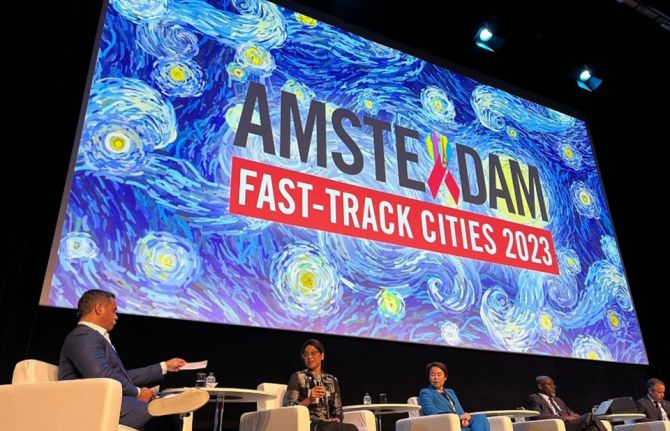

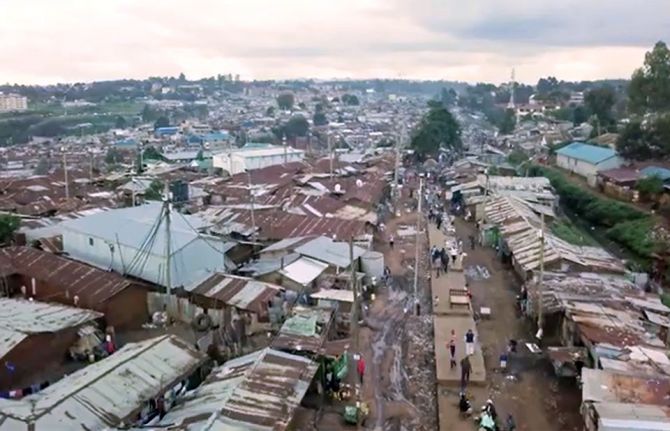
Feature Story
Cities leading the way to achieving key targets in the HIV response
27 September 2023
27 September 2023 27 September 2023Gathered in Amsterdam for the annual Fast-Track Cities conference between 25 ─ 27 September 2023, cities shared their various initiatives toward achieving key HIV targets.
In Nairobi, Kenya a situation analysis conducted at a granular level helped the county to better understand the gaps in the HIV response and to identify priority actions. The data showed that there was a lack of health service points, especially for key populations and young people living in informal settlements. In addition, stigma and discrimination also keeps people away. Zipporah Achieng, a young person living with HIV navigating the dusty streets of Kibera, one of several informal settlements, can attest to this. “Before, life was not easy, the healthcare workers were not well trained, and when they saw youth coming to the hospital, they would start judging them, discriminating them.”
The Nairobi City County, with the support of the USAID-funded joint UNAIDS-IAPAC Fast-Track Cities project, developed activities to create awareness, address vulnerabilities, and reduce discrimination with a focus on young people. Informal settlements house up to 60% of Nairobi’s population despite covering less than 10% of the city. Over a period of five years, community members worked hand in hand with healthcare providers in the establishment of 30 friendly health centres for young people and men who have sex with men and sex workers. As a result, stigma against people living with HIV has been reduced while the uptake of HIV and other health services increased significantly during this time.
Ms Achieng is now a peer educator. She goes out in the community sharing her experience and getting people to come to the clinic. “Now I know what is right and what is wrong, I’m happy because life has changed, life is sweet, there is medicine, there is support, and I’m just happy,” said Ms Achieng.
Nairobi's commitment to fast-tracking HIV services for young people and key populations not only contributed to the city's own public health goals but also set an inspiring example for other urban centres in the country.
Discussions about sex and HIV in Indonesia remain taboo and information limited. As a result, HIV-related knowledge is low, especially among young people. In 2018, UNAIDS created an online chatbot named Tanya Marlo and integrated it in the popular messaging application LINE. “Before Marlo, finding reliable information about HIV and sexual health was really hard. It was difficult to get the right information”, says Arisdo Gonzalez, a user of the online application.
Support provided by the Fast-Track Cities project allowed this pilot to grow into a key tool to reach young people and increase HIV prevention and testing.
Last year alone, 200 000 engagements were recorded on social media and on average 100 users are directed to counselling every month. “Tanya Marlo has been an absolute hit among young people in Indonesia,” said Tina Boonto, UNAIDS Country Director in Indonesia. “Young people feel that they can chat with Marlo anytime, anywhere, and in secret, nobody has to know about it.” To ensure its sustainability and further development, a community group, YKS, has taken over the management of the application.
Kyiv joined the Fast-Track Cities initiative in 2016 and had made remarkable progress towards key HIV targets until Russia declared war in Ukraine. Many feared that treatment, HIV services and outreach would disintegrate. Thanks to emergency funds and the support of the Fast-Track Cities project, a number of interventions were put in place to help those in need, in particular members of key and vulnerable populations like people who inject drugs and LGBTIQ+ members. “Since the invasion, we have managed to maintain our test numbers, didn’t lose a single patient, and ensured continued access to antiretroviral therapy” said Dr. Vitali Kazeka, Director of the Kyiv AIDS center.
One of Kyiv's notable achievements is the establishment of shelters designed to cater to the unique needs of key populations affected by HIV. These shelters provide a safe and supportive environment while also ensuring access to essential healthcare services, counseling, harm reduction programmes, and education about HIV prevention. “The Fast-Track Cities project makes people living with HIV, and those from key population groups, feel like equal citizens of the city… They see that there are special initiatives that care about them and their future,” said Nataliia Salabai, UNAIDS Fast-Track Cities focal person in Kyiv.
Launched in December 2014, the Fast-Track Cities partnership has grown to more than 500 cities and municipalities that have committed to accelerate their local HIV, tuberculosis (TB), and viral hepatitis responses to achieve Sustainable Development Goal (SDG) 3.3 by 2030.
More than half of the world’s population currently live in cities and cities account for a large and growing proportion of people living with HIV, tuberculosis (TB) and other diseases. The risk of contracting, and vulnerability to, HIV and TB infection is often higher in urban areas compared to rural areas, because of urban dynamics such as social networking, migration, unemployment and social and economic inequalities.
In five years, 30 friendly health centres opened in informal settlements in Nairobi
Jakarta, Indonesia: Meet Chatbot Marlo
Despite war, Kyiv HIV outreach remains solid
Our work
Fast-Track Cities' initiatives to end AIDS

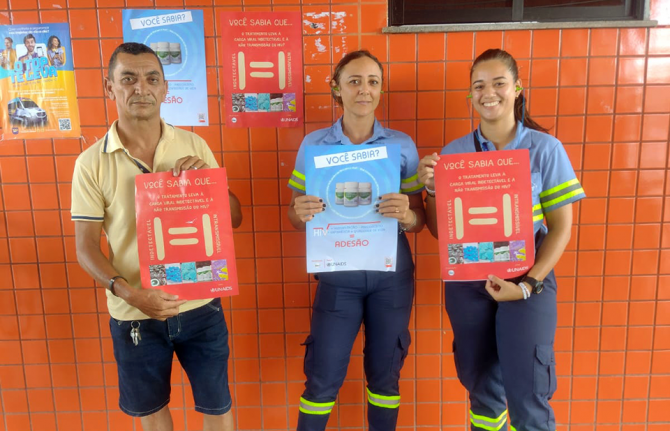
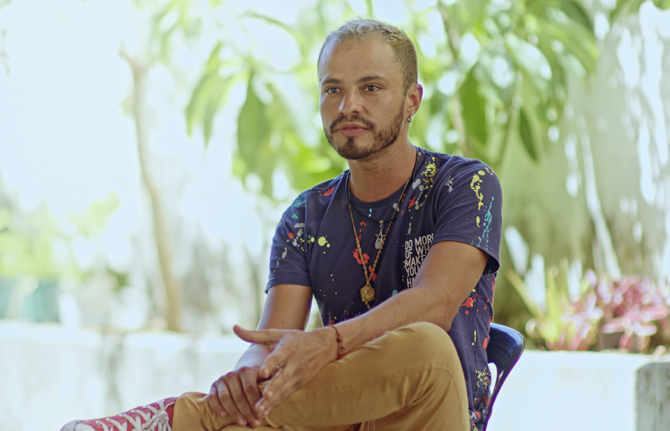
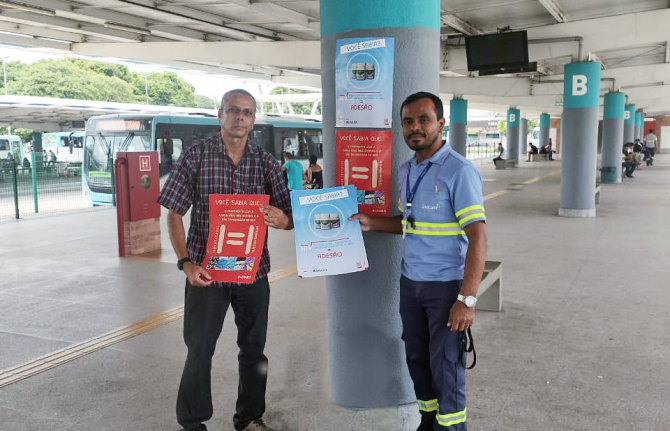
Feature Story
In Northeast Brazil, civil society and local government collaborate to increase HIV treatment adherence
03 April 2023
03 April 2023 03 April 2023In 1988, a group of activists came together in Fortaleza, the fifth largest city in Brazil and capital of Northeastern state of Ceará, to create the local chapter of the National Network of People Living with HIV and AIDS (RNP+CE). The aim was to ensure that people living with HIV could be guaranteed the right to care, treatment adherence, and legal assistance.
Currently, the NGO (Non-Government Organizations) also offers educational workshops, support for the combination prevention of sexually transmitted infections (STIs), and other activities for more than 1,000 registered people. Among them is Carlos Salmão, an HIV activist living in Fortaleza, who felt individually and collectively welcomed by the organization. "This support was very important to me and is fundamental for people living with HIV here in Ceará because it is a reference of the response to the AIDS epidemic. That is why I feel pleasure in contributing", he explains.
The RNP+CE was one of five Brazilian NGOs that received resources from the Fast-track Cities grants initiative, launched by UNAIDS in 2022. With the award, the organization developed actions around two objectives: increasing linkage and adherence of vulnerable key-populations to HIV prevention, diagnosis, and treatment by disseminating and sharing information with health professionals as well as the general public; and improving the knowledge of the Undetectable Equals Untransmittable (U = U) strategy in the city of Fortaleza by carrying out communication campaigns.
Project actions and participation of municipal government
The project involved 10 local HIV-positive activists in the development and implementation of the communication campaigns. They also were involved in preparing a seminar that brought together 120 people from civil society to dialogue about and to present to municipal government representatives proposals to improve the care for people living with HIV, based on the perspectives and actual needs of the users of public health services in Fortaleza. An additional theme of discussion was the challenges and the importance of guaranteeing a satisfactory level of adherence to HIV treatment to avoid abandonment.
Still as part of the project, a booklet on HIV, self-esteem and health was produced and distributed, providing practical information for people who receive a positive diagnosis for HIV. Additionally, in coordination with the municipal government, RNP + CE printed and distributed more than 3,000 copies of posters on HIV treatment adherence and on U = U. This material was displayed in places with high concentrations of people, such as bus terminals, reaching about 1.1 million people daily.
Participation of local government officials was a strategic element to the project’s success, as they are in direct contact with reality and the existing challenges. "We are still far from reaching an ideal level where there is less need to reinforce these [HIV] actions, but we are advancing in this direction through constant and well-structured work", says Carlos Paiva, coordinator of IST/AIDS at the Municipal Health Secretariat of Fortaleza.
Ariadne Ribeiro, UNAIDS Officer for Equality and Rights for All People, agrees and adds: "It is rewarding to see how the dialogue between communities, civil society, and the municipal government is moving towards a common goal, which is the improvement of public policies in the city of Fortaleza for people living with HIV and to end AIDS as a threat to public health."
Watch
Region/country
Related
Documents
Ending AIDS, ending inequalities — Fast-Track Cities
11 November 2022
The “ENDING AIDS, ENDING INEQUALITIES FAST-TRACK CITIES” report presents recent good practices from the 15 cities included in the joint UNAIDS-IAPAC Fast-Track Cities project supported by PEFPAR/USAID. It shows how cities are responding to HIV and other global health threats, building municipal capacity and strengthening partnerships, using data and spearheading innovation to protect and support their citizens. It further shows that, despite varying contexts and challenges, addressing inequalities and reaching those most vulnerable is central to advancing the HIV response towards ending AIDS by 2030.

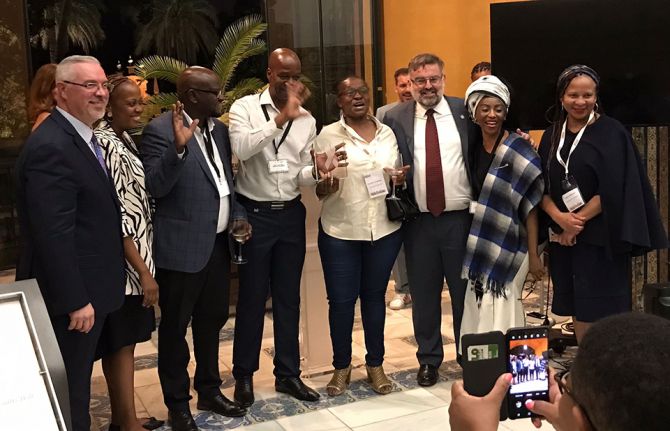
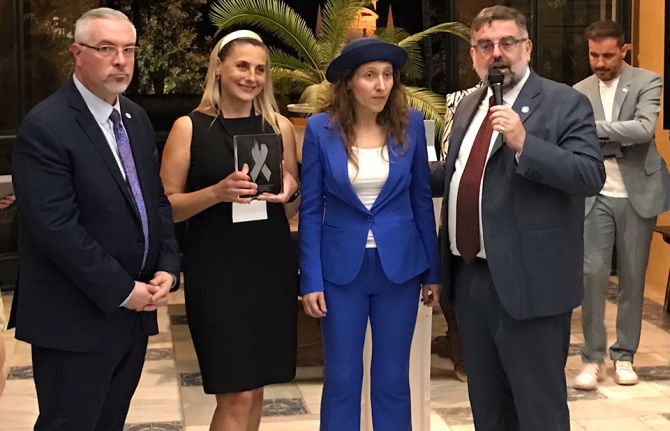
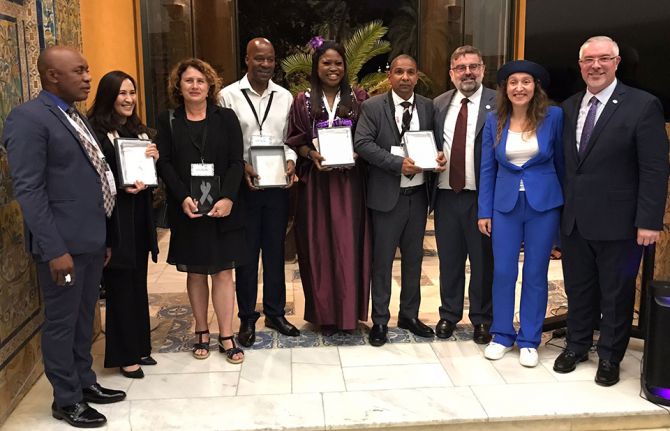
Feature Story
Six cities and a Ukrainian community-led organization recognized at Fast-Track Cities 2022 Conference
11 October 2022
11 October 2022 11 October 2022At a Fast-Track Cities 2022 conference reception held today in Seville, Spain, six Fast-Track Cities and 100% Life, a Ukrainian community-based organization, received 2022 “Circle of Excellence Awards” and the “Community Leadership Award,” respectively, in recognition of their political, public health, and community leadership.
Earlier this year, the International Association of Providers of AIDS Care (IAPAC) and Fast-Track Cities Institute (FTCI), in collaboration with the Joint United Nations Programme on HIV/AIDS (UNAIDS), launched a nomination process to identify cities from six geographic regions whose work exemplifies the Fast-Track Cities mission. Both IAPAC and UNAIDS are core partners of the Fast-Track Cities initiative, which was launched in 2014 and today comprises more than 400 cities engaged in ending their urban HIV epidemics by 2030. The six cities selected to receive the 2022 “Circle of Excellence Awards” include:
- Asia-Pacific: Quezon City, Philippines
- Europe: Amsterdam, Netherlands
- Latin America/Caribbean: Kingston, Jamaica
- North America: New York City, NY, USA
- Southern/Eastern Africa: Johannesburg, South Africa
- Western/Central Africa: Lagos State, Nigeria
The Mayors of Quezon City (Ms. Ma. Josefina Belmonte), Kingston (Mr. Delroy Williams), and New York City (Mr. Eric Adams) accepted their cities’ 2022 “Circle of Excellence” awards in-person (Mayors Belmonte and William) and via video (Mayor Adams). Public health department officials accepted awards on behalf of Amsterdam, Johannesburg, and Lagos State.
100% Life was recognized both for its efforts during the ongoing war in Ukraine, as well as that of other community-led organizations in that country who have advanced humanitarian and public health efforts on behalf of Ukrainians living with and affected by HIV. Ms. Valeria Rachynska, who is Human Rights, Gender, and Community Development Director at 100% Life, accepted the 2022 “Community Leadership Award” on behalf of her organization and partner organizations across Ukraine.
“Political, public health, and community leadership are at the heart of the Fast-Track Cities movement and are integral to averting AIDS-related deaths, stemming new HIV infections, and eliminating HIV-related stigma,” said Dr. José M. Zuniga, President/CEO of IAPAC and FTCI, which launched the two awards at the Fast-Track Cities 2021 conference. “Congratulations to 100% Life and the six cities honored for their exemplary leadership. May they serve as an inspiration for other community-led organizations and cities as they respond to their urban HIV epidemics with bold leadership.”
“Among the lessons that we have learned in tackling HIV is the need for bold political leadership, global solidarity, ensuring communities are at the center of the response, and a commitment to human rights. This has been true for COVID-19 and will be true for other pandemics to come,” said Winnie Byanyima, Executive Director of UNAIDS. “Ending inequalities is the most effective way to ensure that we are more prepared for the next pandemic. We look to city leadership to do this.”
In 2021, the “Circle of Excellence Awards” recognized five Fast-Track Cities: Bangkok, Thailand; London, England, UK; Nairobi City County, Kenya; San Francisco, CA, USA; and São Paulo, Brazil. The 2021 “Community Leadership Award” recognized GAT, a community-led organization providing health and social services to people living with and affected by HIV in Portugal.

